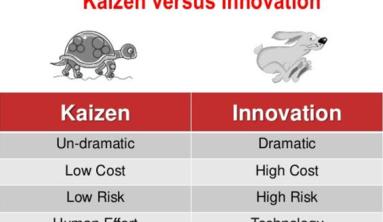The spread of COVID-19 and the surrounding events have impacted millions of lives. Whether you planned on taking meetings from a conference room or having lunch with coworkers, life is looking a lot different these days. Remember that each person is reacting to the current situation in their own way. Empathize with the struggles your employees are facing, encourage them to stay connected to one another and offer support so they can successfully work remote.
Acknowledge Workforce Diversity
Workforce diversity means everyone has a different culture and background. It’s important to acknowledge that each employees’ circumstances are unique during these difficult times. While some employees may enjoy working from home, others may be struggling with their new routine. It’s essential to lead with compassion and look after your individual employee’s well-being during these trying times.
Ask Empathy-Building Questions During Meetings
Take the time to listen to how your employees are feeling during one-on-one meetings. People may be experiencing anxiety, sadness or frustration as they’re being asked to physically isolate and change their daily routines. Susan Milligan, Patient Experience Director, Ensemble Health Partners said in an article for Becker’s Hospital Review, “Being sensitive to the needs they have never shared with you is the essence of empathy.” You don’t need to have all the answers, but listen and understand that people need support and compassion. Showing someone you care is as simple as asking, “how are you feeling?” and “how can I support you?”
Build A Sense Of Community
The office camaraderie and sense of community doesn’t have to end while working from home. Encourage video usage during meetings and set-up virtual “coffee chats” to connect with one another on a regular basis. For many, working from home means having to juggle kids and their workload simultaneously. Balancing both home and work responsibilities can be overwhelming. It’s important to provide access to support and available tools. Encourage employees to take breaks throughout the day and decompress by offering online yoga or meditation sessions.
Be sure to communicate any available resources as some people may not feel comfortable expressing their feelings amongst coworkers. Make sure you share any hotlines or helpful training programs that can assist your employees through these times.
Be Willing To Modify The Rules
While you may want to keep business running as usual, you have to recognize that the current times and circumstances are different. Allowing for some work flexibility can help your employees find their footing and adjust to their new normal. If possible, here’s how you can adjust the rules:
- Encourage mental health days: Employees may be feeling the pressure of dealing with their new circumstances while maintaining work productivity. Let them know it’s okay to ask for a day off when needed.
- Allow for flexible hours: Give employees the opportunity to create a schedule that works best for them, while still remaining available for business needs – like meetings.
- Communicate expectations: If Sundays are the best time for you to get emails out, let employees know that a response isn’t expected until Monday.
- Allow for distractions: Expect that some employees are operating out of a full house. If you hear kids crying or dogs barking in the middle of a meeting, greet it with a sense of humor.
- Talk to your employees: Ask your employees what other adjustments you can make in order to accommodate their needs and discuss what is possible.
Communicate Openly And Take Time To Listen
Open lines of communication and full transparency may reduce any feelings of uneasiness during difficult times. According to Dan Grupe, a postdoctoral research associate at the University of Wisconsin-Madison’s Center for Investigating Healthy Minds, “Uncertainty itself can lead to a lot of distress for humans in particular.” Overcommunicating is never a bad thing. Keep employees informed about what decisions are occurring and why they’re having to be made. Take the time to really listen to your employees and address any concerns they might have. Let them know what tools or resources are available to help them.
Be A Safe And Trusted Resource
Solely focusing on your business goals can make it challenging to build a strong rapport with employees. “Do something that makes them believe that you are one of them,” says David DeSteno, a professor of psychology at Northeastern University. That signals that “even though you are the boss, in the end you’re all in this together.” Engage with your employees on a personal level and don’t be afraid to show vulnerability. Don’t shy away from sharing personal, work-appropriate stories that humanize your interactions. Relating to your employees and empathizing with them can help strengthen the individual ties that construct your team.
Workforce diversity means everyone has a different culture and background. Similarly, each employee will have a unique experience during these difficult times. Acting with kindness can help everyone navigate their situation – even if you don’t know all the answers. Lastly, remember that you can effectively lead with compassion without being physically present.






